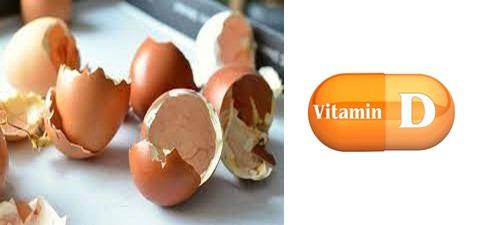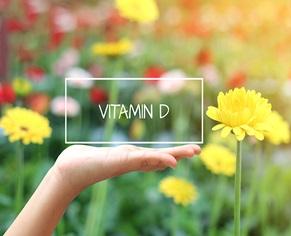Botanical analogues of vitamin D for restoring Ca and P dynamics in egg laying birds exposed to heat stress
Published: February 27, 2023
By: Dr. Shivi Maini, General Manager Technical, Indian Herbs Specialities, Chandigarh, India
Effects of heat stress on plasma calcium concentration, egg production and egg quality
Highly productive modern poultry breeds are more prone to heat stress and rising global temperatures is one of the greatest challenge for the industry. It greatly damages a bird’s performance in terms of feed intake, feed conversion, body weight, egg production, rooster activity and hatchability (Nilipour, 1996). Stress of high environmental heat during summer also interfere with the calcium absorption and utilization and significantly declines calcium and inorganic phosphorus levels in plasma (Bogin et al., 1981; Srivastava, 1994). Abramyan and Kostanyan (1990) reported decreased blood calcium concentration in heat stressed laying hens. For hens, calcium (Ca) and phosphorus (P) are key minerals, and their availability is most crucial during the laying period (De Vries et al., 2010). Calcium constitutes approximately 1.5% of hen BW and 40% of eggshell weight (Bolukbasi et al., 2005). It is mainly stored in the form of calcium phosphate in the skeleton (Whitehead and Fleming, 2000) and in the form of calcium carbonate in an eggshell (Bolukbasi et al., 2005; Bar, 2009). Economic loss from poorly shelled, cracked, and broken eggs continues to be a major problem on commercial farms. Among the factors influencing egg breakages is the lowered egg shell quality due mainly to reduced calcium deposition over the egg.

Vitamin D : the most essential micronutrient to calibrate Ca & P metabolism
Calcium and vitamin D has probably been most studied nutrients more than any other mineral in relation to heat stress. This is because both egg weight and egg shell strength declin e at high environmental temperature. The percentage of calcium necessary in the laying ration is mainly influenced by amount of feed consumed. During hot weather feed consumption decreases resulting in decreased egg production and inferior egg quality. Adequate levels of calcium (Ca), Phosphorus (P) and Vit. D3 are essential to ensure bioavailability of Ca for proper egg shell formation. Vitamin D is an essential micronutrient required by egg laying birds for the function and maintenance of calcium and phosphorus metabolism (Nascimento et al., 2014).
For poultry birds, endogenous vitamin D synthesis is limited and therefore supplementation of vitamin D via the feed becomes increasingly important to prevent adverse deficits. In addition, the requirements of modern and commercially-raised poultry are increasing due to high production levels and variable needs at different stages of production. Vitamin D3 stimulates the absorption of calcium, magnesium and phosphorus in the intestine and it is involved in the bone mineralization. It is also necessary for embryonic development of the chick and for the immune response. Many authors reported about impaired digestibility and the metabolism of calcium in older under heat stress. The older hens exposed to heat stress produces bigger and thin shelled eggs. Besides, liver and kidney metabolism may be deficient in aging hens, deteriorating the activation process of vitamin D3.
Despite adequate levels of vitamin D in layer feeds, its deficiency is relatively frequent and lead to deficiencies in the eggshell, reduced hatchability, deformed embryos, skeletal diseases, rickets and cage layer fatigue (Sahin et al., 2009). Administering an extra supplement of vitamin D is advised for laying hen, most importantly during summer stress (Bar et al., 1999).
Botanical analogues of vitamin D for optimized calcium absorption
Among vitamin D supplementation options, plant-derived form of vitamin D and its analogues is well researched and scientifically proven. Innovative plant-based phytogenic feed supplements provide the opportunity to stabilize layer and breeder performance during hot weather. These natural strategies include the use of phytogenic vitamin D sources to offer a tailored supply for high-performance livestock. Phytogenic vitamin D, its analogues or metabolites provides an optimum means of maintaining and even raising productivity in times of high metabolic pressure or increased stress and thus appears to be an attractive new tool for use in animal nutrition.

MagaCal AFI (M/S Indian Herbs Specialities Ltd., Saharanpur, India) is a herbal feed supplement which helps to prevent and overcome calcium and phosphorus deficiency syndromes. MagaCal AFI contains advanced complexing agent to form organic complex with dietary calcium, phosphorous and magnesium to enhance absorption and bioavailability of these minerals from the layer ration. The natural Vitamin D metabolites of MagaCal AFI in highly bioavailable organic form increase the Calcium Binding Protein (Calbindin) concentration in the intestine to enhance absorption and bio-availability of dietary calcium and phosphorus. MagaCal AFI ensures optimum absorption, bioavailability and utilisation of dietary calcium and phosphorus, with normal as well as deficient diets, maintaining proper Calcium:Phosphorus ratio. MagaCal AFI reduces excretion of both Calcium and Phosphorus by 25% to 30% and thus ensures their higher retention and utilisation. Due to its advanced delivery system, MagaCal AFI facilitates the translocation of Ca, P and Mg ions to the sites of requirement in the body and safe excretion of their unutilized quantities as water soluble substances through the urine. MagaCal AFI significantly improves bone-mineralization, bone density and collagen biosynthesis with regular bone-remodeling. It also contains Biotin like bioactives that help to improve hatchability as well as growth and strength bones. MagaCal AFI effectively prevents the egg shell problems such as thin and brittles shell etc. in egg laying birds.
Studies to evaluate efficacy of MagaCal in layer and breeders revealed improved eggshell quality, maintained laying performance and modulation of the immune system, resulting in improved feed conversion. The beneficial effect of MagaCal supplementation in improving the productivity can be attributed to the absorption enhancing ability of the synergistic herbs. These ingredients herbs have been documented to increase the uptake and utilization of dietary calcium and phosphorus. They optimize the serum levels of calcium and phosphorus and regulate their mobilization from the skeletal system (Ashan et al., 2009), thus ensuring the better availability of the nutrients. MagaCal AFI is recommended to maintain the levels of calcium needed for optimal egg production, reinforce skeletal health, prevent cage fatigue, stimulate the hepatic metabolism and the immune system, improve the quality of the egg and the health of day-old chicks, to avoid production drop of the laying hen due to climatic or other stressors, in pre-laying phase to pullets so as to induce egg production, in peak laying phase so as to prolong and sustain higher egg production, in late laying phase so as to enhance calcium absorption and prevent egg shell thinning.
Conclusion
For laying hens, calcium (Ca) and phosphorus (P) are key minerals, and their availability is most crucial during the laying period. The percentage of calcium necessary in the laying ration is mainly influenced by amount of feed consumed. During hot weather feed consumption decreases resulting in decreased egg production and inferior egg quality. Inspite of adequate calcium and vitamin D in diet, a higher incidence of poor egg shell quality, calcium deficiency syndromes and decline in overall production is commonly observed in layers. There is an increasing trend towards the use of phytogenic additives. these natural strategies include the use of phytogenic vitamin D sources or natural analogues to sustain egg production in layers exposed to high temperature. MagaCal AFI supplementation provides the right solution by enhancing the bioavailability and utilization of available dietary calcium and phosphorus in place of addition of more calcium and synthetic Vitamin D which is not only expensive and makes the feed unpalatable but also interferes with bioavailability of other minerals leading to reduced growth and poor FCR. Phytogenic feed additive MagaCal AFI provides an optimum means of maintaining and even raising productivity in times of high metabolic pressure thus appears to be an attractive safer and new tool to sustain egg quality and productivity in laying birds exposed to heat stress.
(References may be requested from author)
Related topics:
Authors:
Indian Herbs
Recommend
Comment
Share

Would you like to discuss another topic? Create a new post to engage with experts in the community.
Featured users in Poultry Industry

Nelson Ward
dsm-Firmenich
Manager, New Business Development at DSM Nutritional Products Inc.
United States
United States






